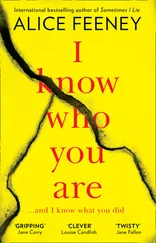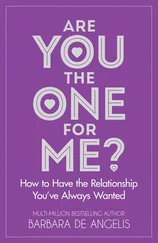The cover photo was taken at a Soviet Pioneer camp on the Black Sea. Jenny was invited there to meet the Soviet youth, to witness their loyalty to the party and their devotion to friendship and peace. The Pioneers were like Girl Scouts with a political agenda. They marched in formation, they sang the praises of the motherland, “the country of happy childhood.” In the picture Jenny wears one of the Pioneer uniforms: a white blouse with a Peter Pan collar, a scarf knotted around the neck, a crisp blue cotton kilt, and white kneesocks. Slightly out of focus behind the smiling Jenny is Svetlana—also uniformed as a Pioneer with a red kerchief. The caption inside says, “Svetlana Romanova and me at Artek.” She had been recruited by the Kremlin because she spoke some English. And probably because she was as ideal a representative of Russia as Jenny was of America. She had blond hair, tawny skin, and a wide-eyed Slavic face—and although she was only twelve, you could see outlines of the feline beauty she would become. When Jenny returned from the USSR, she would not stop talking about her new friend. “Svetlana is so good at ballet,” she would say, or “Svetlana gave me this lacquered Russian box.” I never responded to these comments. I felt like I was being replaced. It was bad enough to have been left out of the trip. Our friendship was already on shaky ground, and by the spring of sixth grade we were often passing each other in the halls at school with little more than a nod. It might have been awkward if Jenny didn’t travel so much, but she missed fifty days of school that year because of media appearances.
I didn’t e-mail Svetlana right away. I wasn’t ready to dredge up the past. For years I had kept a file box of Jenny memorabilia under my bed. I even brought it to college with me, because I worried my mother would confiscate it for her own collection. She was still petitioning the Smithsonian to create a Jennifer Jones exhibition at the Museum of American History. But I hadn’t opened the box since I arrived on campus. After years of being known as the best friend of the girl who died (“Such a tragedy, ” everyone always said to me), it was a relief to finally be viewed as my own person. In college I was Sarah Zuckerman, not Jennifer Jones’s best friend. I made a point of telling no one that I knew her. And, to be honest, no one remembered Jennifer Jones. She had been reduced to a footnote in the history of the Cold War. Once during my freshman year, I asked the people at my dinner table if they knew who she was. “Is she that girl in our psych seminar? The one who always wears her field-hockey jacket?” asked one. “Was she on that TV show?” said another. “The one about the girls’ boarding school?” A few people mentioned Jennifer Jones the movie star, but most people responded with blank stares.
As graduation loomed, I worried more and more about what I was going to do next. I felt qualified to do absolutely nothing, and the real world filled me with dread. In those days résumés were supposed to include a list of all the computer programs you knew, as if Adobe proficiency were a predictor of success, and the fact that I knew only Word seemed proof that my liberal-arts degree was worthless. I had no job and no plan. College was comfortable—so comfortable that I had stretched out my time there, going abroad for so little academic credit that I had to remain on campus for a fifth year. I had always been young for my class; now I would graduate, like most students, at twenty-two. I liked the pattern of my days. Midmorning lectures in imposing Gothic buildings, afternoon seminars in quaint clapboard houses, late nights in the library, where friends were never more than a few carrels away and could be easily coerced into coffee breaks. It was a picturesque campus on a hill, and even in winter, with several feet of New England’s snow on the ground, the place seemed to be bathed in warm light. It was a nostalgia factory; we were being trained to be sentimental about the school so that we’d respond to their relentless appeals for money after we left. But I couldn’t be cynical about the place. I was happy there. I liked formatting my life around a syllabus, checking off assignments at each due date. I liked hunting and gathering for my meals with orange plastic trays in the dining hall. The parties were appealingly predictable: the supply of drinking cups always dwindled long before the kegs were dry, so it behooved you to snag one early or bring your own. I even liked the dorms. Sure, the furniture was institutional, but not having to decorate took the pressure off. I’d been lucky to live in a single room all four years, and every fall it was so easy to settle in. You just needed to unfurl your bedding, plug in your fan, shelve your books. No IKEA assembly, no grocery shopping, no cooking, no grieving mother. I knew I’d never have it so good.
So I found myself thinking about Svetlana. I had been waiting for a letter from Moscow since 1983. Now that I’d finally received one, could I really ignore it?
I went to the library computer lab and e-mailed Svetlana a week before graduation:
From: swzuckerman@merton.edu
To: Svetlana.Romanova@ddbd.ru
Date: May 17, 1995
Dear Svetlana,
Yes, I am the Sarah Zuckerman who helps organize the Jennifer Jones Festival. She was my best friend before she died. I’ve wanted to visit Moscow for many years. What do you mean by “special tour”?
Best,
Sarah
It was her reply that made me determined to go to Russia:
Dear Sarah,
How do you know Jennifer Jones is dead? Because you saw on the television? You must believe also that your American cosmonauts walked on moon! Americans are like the kindergarten. You believe every thing you see. Here in Russia we know that news is not truth. When trouble happened, television here showed Swan Lake on all channels. Everywhere you look, it was Swan Lake. The last time Swan Lake was on the TV was during coup in 1991. There were tanks in the street but on television, ballet.
If you come to Moscow, I can organize for you to visit churches, theatres, Kremlins. Is very interesting time here.
Sincerely,
Sveta
Of course Jenny was dead. Her demise was part of my curriculum vitae. Her name was chiseled into me, as if I were a memorial wall, so that even a blind person could feel the impression she’d made. Death had restored our friendship, like varnish on a weathered floor, and given me an easy explanation for my elegiac strains. I had a knack for grief.
Reading Svetlana’s e-mail made suspension of disbelief awfully tempting, though. I’d always loved magic shows as a kid: how wonderful to watch things disappear and then—presto!—reappear again, good as new. Jesus’s resurrection? Hocus-pocus, I thought, but what an irresistible story. Roll back the stone, Mary Magdalene, and tell us about the empty tomb.
Svetlana’s insult about Americans seemed especially stinging since she had used (incorrectly, and all the more pointedly) a definite article. There are no articles in Russian, so the difference between “a” and “the” can be perplexing. “The kindergarten,” Svetlana wrote, as if it were the only one, as if everyone in the United States were going down for an afternoon nap at the same time.
“Dear Svetlana,” I wrote . “American astronauts did walk on the moon. Perhaps you have not seen the footage of Neil Armstrong in 1969.” I had been to the Air and Space Museum enough times to know the legend of the Apollo missions. “And as for Jennifer Jones, I was at her funeral.”
It was at the National Cathedral to accommodate the hundreds of mourners and press. The service was for all three of them—Jenny and her parents, who died with her—but it was Jenny that the news crews were interested in. “Jennifer wanted peace,” the bishop of Washington said. “And now she has found it.” My mother rolled her eyes.
Читать дальше












